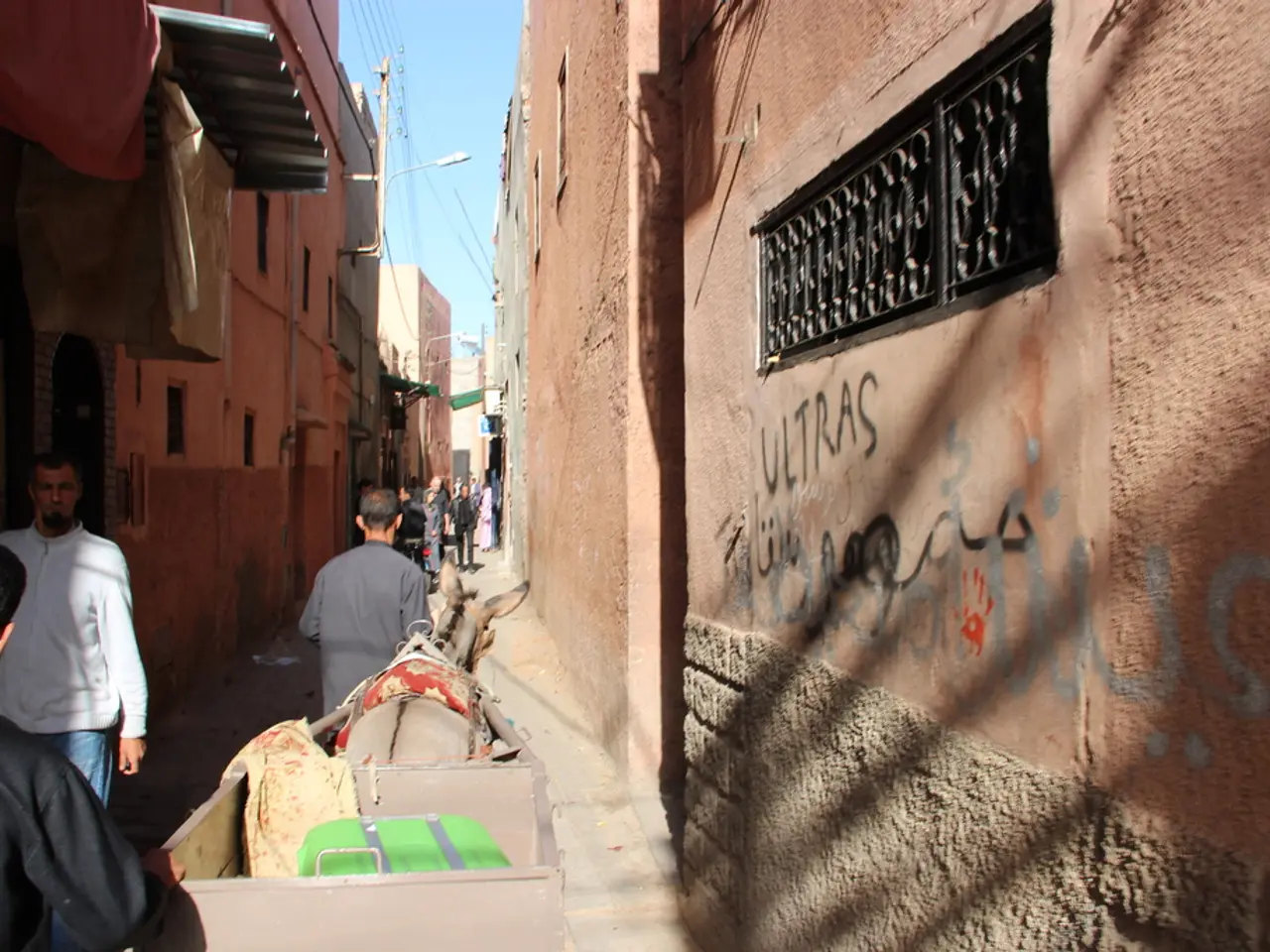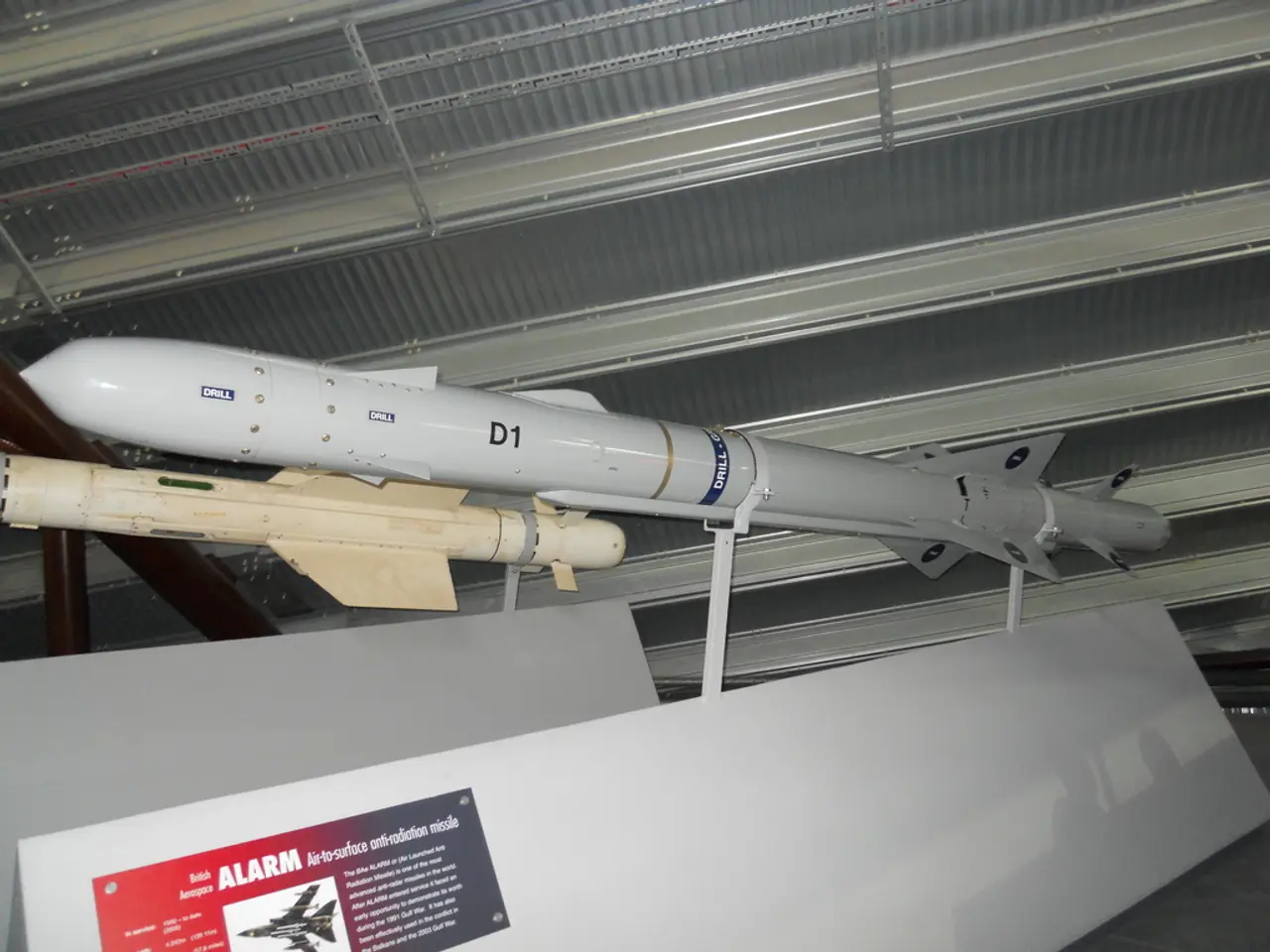Israel needs to ensure the security of Gaza's supplies, as mandated by the Federal Government.
The humanitarian crisis in the Gaza Strip remains dire, with over 2 million people fully dependent on aid amid a looming famine and widespread starvation risks. In recent developments, Germany's transport aircraft have dropped pallets containing food and medical equipment over the Gaza Strip, marking a small contribution to the ongoing aid effort.
Since last week, approximately 220 trucks with aid supplies have been arriving in the area daily. However, the scale of aid reaching the population is far below what is needed to prevent mass hunger and malnutrition. The main challenges appear to be logistical, security-related, and political rather than confirmed diversion of aid supplies by Hamas or other organizations within Gaza.
Israel, responsible for ensuring comprehensive supply of aid, has imposed severe restrictions on aid deliveries for several months. The Gaza Strip's infrastructure has been destroyed due to ongoing hostilities, and border crossings have been subject to delays and bottlenecks. The conflict, sparked by Hamas-led attacks, has exacerbated the humanitarian crisis, but the majority of the reported crisis and starvation is due to these ongoing hostilities, infrastructure destruction, and blockade effects.
Chancellor Friedrich Merz (CDU) has thanked the German Armed Forces, Jordanian, and European partners for their assistance in the air drops. The German Armed Forces began their aid action on Friday, dropping 73 tons of supplies. However, there is concern about the diversion of aid supplies in the Gaza Strip, with reports suggesting that 50 to 100 percent of the aid supplies reaching the strip are being diverted by Hamas or other criminal organizations.
The federal government sees "initial slight progress" in humanitarian aid for the population in the Gaza Strip. Despite this progress, calls have been made for ceasefires and increased aid access to alleviate the catastrophe. The aid distribution system in the Gaza Strip is heavily controlled and militarized, limiting the ability to meet the massive needs.
The price of flour in the Gaza Strip is at an exorbitant 80 euros per kilogram, and only one out of ten power transmission lines is currently functioning. Two out of three major water pipelines are also currently functioning. The Ministry of Defense announced the aid action, and Merz emphasized that airdrops are only a small contribution to alleviating the suffering of the people in Gaza. Efforts continue to enable aid via land routes.
References:
- Al Jazeera
- The Guardian
- Reuters
- UN OCHA
In the ongoing humanitarian crisis in the Gaza Strip, political challenges, alongside logistical and security issues, have contributed to the struggle of providing sufficient aid to prevent mass hunger and malnutrition. Despite Germany's recent airdrops of aid supplies and Israel's initiatives to facilitate land-based aid deliveries, there are concerns about the diversion of aid supplies by organizations within Gaza, including Hamas and criminal entities.




